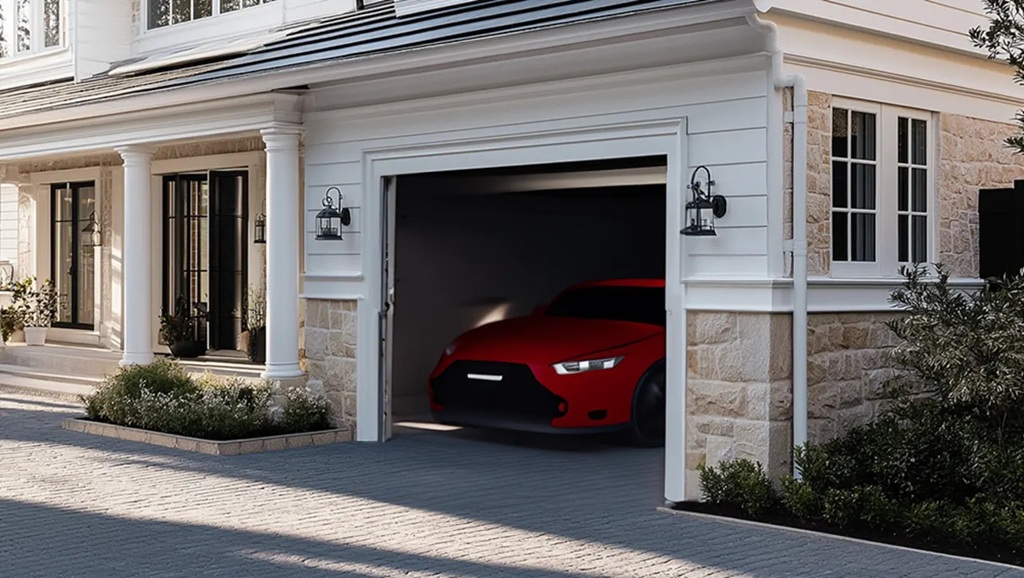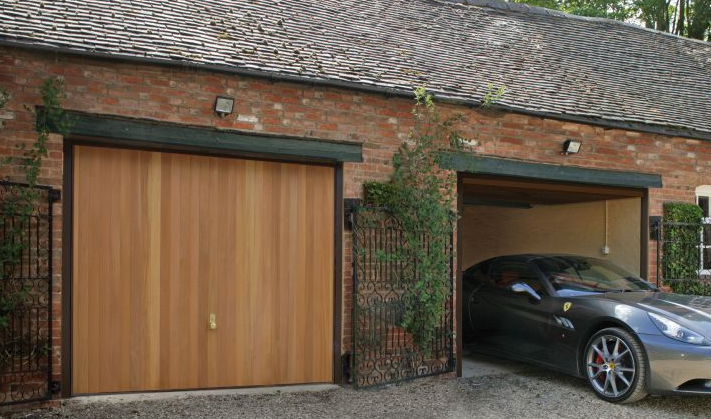Your garage door isn’t just a moving wall; it’s the welcoming face of your home, a security barrier, and a major contributor to your property’s curb appeal. Whether you’re building a new garage, replacing an old door, or simply curious about the standards, understanding typical garage door sizes is essential. This comprehensive guide dives deep into the world of garage door dimensions in the USA, exploring common sizes, variations, and factors influencing the ideal fit for your home.
Standard Garage Door Sizes: The Usual Suspects
While customization is always an option, most homes in the USA feature standard garage door sizes. These dimensions cater to typical vehicle sizes and construction practices, offering readily available and often more budget-friendly solutions.
Let’s break down the most common sizes:
Single Garage Doors:
- 8 x 7 feet: This is the most common size for single garage doors, providing ample space for most standard sedans and compact SUVs.
- 9 x 7 feet: Offering a bit more headroom, this size is suitable for larger vehicles like SUVs, trucks with camper shells, or vans.
Double Garage Doors:
- 16 x 7 feet: The most popular choice for double garages, accommodating two standard vehicles comfortably.
- 16 x 8 feet: Increasing the height, this size caters to larger vehicles or those requiring extra vertical clearance, like trucks with raised suspensions or vans with roof racks.
Note: These dimensions represent the door opening itself, not the overall size of the door panel, which will be slightly larger to accommodate the frame and tracking system.
Beyond the Basics: Variations and Considerations
While standard sizes cover a majority of homes, there are variations and special considerations that might influence your garage door dimensions:
- Regional Differences: While the above sizes are common across the USA, slight regional variations can occur. For instance, homes in areas with larger vehicles, like trucks or RVs, might have wider or taller garage doors.
- Architectural Styles: The architectural style of your home can also play a role. Modern homes often feature wider double doors or unique custom sizes to complement their design aesthetic.
- Older Homes: Older homes may have non-standard garage door sizes due to historical building practices.
- Ceiling Height: The interior ceiling height of your garage will limit the maximum height of your door.
Garage Door Size Chart (USA)
For a quick visual reference, here’s a table summarizing common garage door sizes in the USA:
| Door Type | Width (feet) | Height (feet) | Common Use |
| Single | 8 | 7 | Standard cars, compact SUVs |
| Single | 9 | 7 | Larger SUVs, trucks with camper shells |
| Double | 16 | 7 | Two standard vehicles |
| Double | 16 | 8 | Larger vehicles, trucks with raised suspensions |
| RV Size | 10-12 | 10-12 | RVs, boats, large trailers |
Export to Sheets
Finding the Perfect Fit: Measuring Your Garage Door
Accurate measurements are crucial when replacing or installing a new garage door.
Follow these simple steps to determine the right size for your garage:
- Measure the Width: Use a tape measure to determine the width of the garage door opening from the inside edge to the inside edge.
- Measure the Height: Measure the height of the opening from the floor to the underside of the header (the horizontal beam above the door).
- Consider Headroom and Sideroom: Ensure there’s enough space on the sides and above the opening for the door’s tracking system and any lifting mechanisms.
- Account for Obstructions: Note any potential obstructions, such as light fixtures, pipes, or ductwork, that might interfere with the door’s operation.
Pro Tip: If you’re unsure about measuring or encounter any complexities, it’s always best to consult a professional garage door installer for expert guidance.
Related: Innovations in Three-Car Metal Garage Design
Beyond Size: Factors Influencing Your Choice
While size is a primary concern, other factors play a significant role in selecting the perfect garage door:
- Style and Design: From traditional raised panel designs to modern sleek styles, choose a door that complements your home’s architecture and your personal taste.
- Material: Garage doors are available in various materials, including steel, wood, aluminum, and fiberglass, each offering different levels of durability, insulation, and maintenance requirements.
- Insulation: If your garage is attached to your home or used as a workspace, consider an insulated garage door to improve energy efficiency and regulate temperature.
- Windows and Decorative Hardware: Enhance the aesthetic appeal of your garage door with windows, decorative hardware, and custom colors.
- Budget: Garage door prices vary significantly based on size, material, style, and features. Set a realistic budget before exploring your options.
Frequently Asked Questions (FAQ)
-
What is the standard garage door size for a single-car garage?
The most common size for a single-car garage door is 8 feet wide and 7 feet high. However, 9 x 7 feet is also a standard size, offering more headroom for larger vehicles.
-
Can I install a larger garage door than my current opening?
Yes, it’s possible to enlarge your garage door opening to accommodate a larger door. However, this requires professional expertise and may involve structural modifications to your garage.
-
What is the best material for a garage door?
The best material depends on your needs and preferences. Steel is popular for its durability and affordability, while wood offers classic elegance. Aluminum is lightweight and corrosion-resistant, and fiberglass requires minimal maintenance.
-
How much does a new garage door cost?
Garage door prices vary widely based on size, material, style, and features. On average, you can expect to pay anywhere from $700 to $4,000 or more for a new garage door, including installation.
-
How do I know if my garage door is the right size?
If your vehicle fits comfortably with ample clearance on all sides and the door operates smoothly without obstructions, your garage door is likely the right size.
-
Can I customize my garage door size?
Yes, many manufacturers offer custom garage door sizes to fit unique openings or architectural designs. However, custom doors typically come at a higher cost and may have longer lead times.
Making the Right Choice
Choosing the right garage door size involves a careful balance of practicality, aesthetics, and budget. By understanding standard sizes, measuring accurately, and considering factors beyond dimensions, you can make an informed decision that enhances your home’s functionality and curb appeal for years to come. Remember, professional advice is always valuable when making significant home improvements. Don’t hesitate to consult with experts to ensure you select the perfect garage door for your needs.






